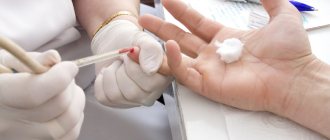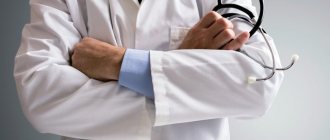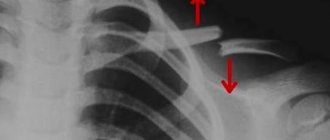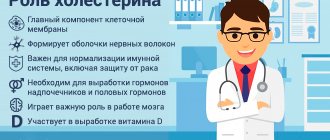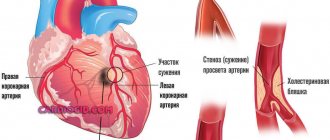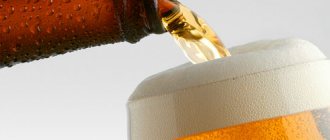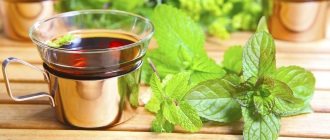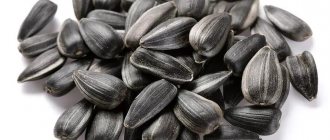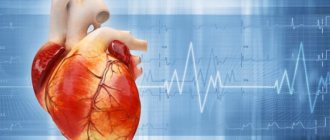Coffee has long been firmly established in the life of almost every person; few people imagine their morning without a portion of the aromatic drink, which gives vigor and tone. But few people think about whether this product has beneficial and harmful properties, despite a lot of research being conducted. Another interesting connection is coffee and cholesterol.
Drink lovers who have an elevated level of this organic compound in their blood are afraid to drink coffee in the same quantities, but is this fear justified? Today we need to consider the effect of coffee on blood cholesterol, whether the drink increases or decreases these indicators, as well as how to brew the beans correctly in order to get only the benefits from their consumption.
Composition of the drink
To figure out whether you can drink coffee if you have high cholesterol, you need to know about the composition of the drink. This topic has long been a source of controversy among experts - some of them claim that coffee beans contain substances that are dangerous to the condition of blood vessels, others claim that the drink can only have a beneficial effect on the body.
The content of substances in coffee is as follows:
- soluble carbohydrates - 1/2 of them are sucrose;
- more than 30 types of organic acids - the most useful of them is chlorogenic acid. It is involved in the synthesis of protein molecules, improves gas exchange, having a beneficial effect on the condition of the body. In addition to chlorogenic acid, coffee contains citric, malic, acetic and oxalic acids;
- caffeine - everyone has heard about the content of this component in coffee. It is caffeine that is the culprit of debate about how the drink affects the body, whether it harms or benefits. The compound belongs to the class of organic alkaloids that cause increased tone, vigor (and if the drink is abused, nervous excitement and addiction);
- nicotinic acid - 100 g. Coffee beans contain 1/5 of the daily requirement of vitamin PP, which is necessary to strengthen blood vessels and maintain adequate blood supply to tissues;
- important microelements are iron, phosphorus, potassium, calcium and magnesium. There is no need to list the useful properties of these elements; everyone knows about them. Potassium contained in coffee maintains the elasticity and tone of capillaries, making them less brittle. Paradoxically, despite the existing harm of caffeine, the drink still brings benefits.
Why is the drink consumed and loved by many so fragrant? The exquisite smell of coffee is given by the essential oils it contains, which have many beneficial properties. Many of the oils fight inflammation, reduce pain and eliminate spasms. The aroma of coffee depends on the method of roasting the beans and the temperature maintained during this process.
Is there cholesterol in coffee itself? It is worth noting that the grains do not contain this organic compound, and the drink itself does not belong to the category of high-calorie drinks. But it is not only the intake of cholesterol from the outside that affects the amount of this substance in the blood.
Decaffeinated coffee
In principle, it is possible, since caffeine does not participate in the process of cholesterol synthesis. It is cafestol that matters, and natural decaffeinated coffee contains it, like other natural oils. That is, if you prefer ground coffee without caffeine, the principles of safe consumption with high cholesterol are the same as for regular natural coffee - the finished drink must be filtered through a filter. If you drink decaffeinated instant coffee, if you have high cholesterol, it will not increase its blood level.
How grains affect cholesterol levels
If you drink coffee every day and are wondering about the effect of beans on cholesterol levels, you need to know about their characteristics. It is necessary to immediately make a reservation that we will have to talk only about a pure natural product, without any additives.
After all, if a person drinks coffee with milk, he must take into account that this product already contains cholesterol, especially if the milk has a high percentage of fat content. Coffee beans contain an element called cafestol, which can raise cholesterol levels in the blood when consumed regularly in large quantities.
Scientists conducted new studies, during which they were able to prove the direct effect of cafestol on the condition of capillaries and cholesterol levels in the blood. The substance and cholesterol are not directly related, but cafestol disrupts the absorption mechanism of its own cholesterol in the intestinal tissues, negatively affecting its walls.
What types of coffee are rich in “harmful” cafestol?
Not every type of coffee increases blood cholesterol, since the content of the cafestol element in them is different. What type of drink should you avoid if you have problems with increased cholesterol:
- in Scandinavian - in another way it is called “a real man’s drink.” Its peculiarity in preparation is that the ground grains are not boiled, but only wait for the moment of boiling, and garlic is used;
- espresso – if you have high cholesterol, it is better not to drink it, since this coffee contains a lot of cafestol;
- drink prepared using a coffee pot or French press - the method of preparation is no less important.
Today, there are many types of coffee, and it depends on which one a person drinks whether cholesterol levels in the blood remain normal or increase. It is not harmful for completely healthy coffee lovers to drink a hot drink, even of the listed types, if we are not talking about daily large doses.
Instant coffee
Herbs for high cholesterol
Recent studies conducted to determine the benefits and harms of coffee drinks for people with high cholesterol have found that instant coffee is the safest for this group of patients.
Cafestol is a substance that becomes more abundant in a drink during prolonged cooking. But instant coffee does not need to be prepared for a long time. Many people do not like instant drinks, considering them unnatural.
However, during the preparation process, the beans are also processed - roasted, ground, after which the instant coffee is simply dried with a stream of hot air, and the ground coffee is boiled. The result in both cases is a natural finished product.
If earlier manufacturers added dichloroethane to instant coffee (during the manufacturing process), now sanitary standards do not allow the use of this additive. Therefore, lovers of instant drinks can rest assured that the product is completely natural, although it has a less pronounced aroma than ground ones.
However, doctors say that instant coffee can be drunk without fear of increasing cholesterol levels in the blood, since it does not need to be subjected to long heat treatment to release cafestol.
Products with added plant sterols and stanols
Products are available that are fortified with sterols or stanols, plant substances that block the absorption of cholesterol.
Some margarines, orange juice and drinking yogurts with added plant sterols can reduce LDL levels by 5-15%. To see results, you need to consume at least 2 grams of plant sterols per day, which equates to about 2 glasses of sterol-fortified orange juice.
It is unclear whether foods containing plant sterols and stanols reduce the risk of heart attacks and strokes, although experts believe that cholesterol-lowering foods also reduce the risk of cardiovascular complications. Plant sterols and stanols do not affect the level of triglycerides and high-density lipoproteins (HDL), the so-called “good” cholesterol.
Can you drink coffee if you have high cholesterol?
If you have high cholesterol, many doctors advise completely giving up strong tea and coffee, but is this justified? As already mentioned, ground varieties of the drink contain cafestol, and it becomes even larger with prolonged heat treatment. The longer the drink is kept on fire, the more harmful it becomes for those with high blood cholesterol levels.
Accordingly, if coffee is boiled several times during the preparation process (for example, when brewing using the Scandinavian method), then it should not be consumed if you have high cholesterol. For lovers of ground coffee, I can only advise a way to remove excess cafestol from coffee so that they can drink it without fear.
It is necessary to use a paper filter; excess harmful substances will remain on the walls of the filter, and the drink itself will be cleaned. If you wish, you can purchase a special coffee maker equipped with a paper filtration system.
Another way to avoid the harmful effects of cafestol on the body is to drink a caffeine-free drink. Women have long loved it, thanks to its ability to reduce weight and cleanse the body of waste and toxins. In the process of preparing the beans, excess caffeine is pumped out of them, while preserving the unforgettable aroma and beneficial properties.
However, doctors are debating here too, because cafestol is released during the long-term brewing of the drink, and the caffeine content has nothing to do with this. For people who are interested in the question of how much and what kind of coffee they can drink so as not to harm their health, it is better to visit a specialist, donate blood for cholesterol levels and select a more suitable type of drink together with a doctor.
Beneficial features
Also, a cup of freshly brewed natural coffee contains one fifth of the body’s daily requirement for vitamin P.
The vitamin P component, rutin, has the following properties:
- Strengthens small capillaries, especially in peripheral organs;
- Restores the elasticity of capillaries and vessels of medium diameter;
- Normalizes the structure of the vascular membranes;
- Prevents cholesterol molecules from sticking to the lining of the arteries;
- Accelerates blood flow in the system.
Coffee beans contain significant amounts of potassium. The number of potassium molecules in a coffee bean is so high that this drink is considered a supplier of potassium molecules to the human body.
The effect of potassium molecules on the human body is great:
- Corrects the blood pressure index;
- Has a beneficial effect on the myocardium;
- Prevents the development of cardiac ischemia and myocardial infarction;
- Normalizes the functioning of the heart organ;
- Normalizes the rhythm of the heart;
- Cleanses the bloodstream system of slagging and toxins;
- Reduces the risk of cerebral stroke.
Coffee beans contain the component chlorogenic acid. When the beans are roasted, its concentration decreases, but coffee beans contain more chlorogenic acid than any other plant.
This component has the following effects on the body:
- Improves metabolism;
- Normalizes the exchange of lipids and carbohydrates;
- Reduces the likelihood of developing both types of diabetes.
Essential oils in coffee beans not only give it aroma, but are also a suburban antiseptic that prevents the development of infection and inflammation.
Coffee beans contain significant amounts of potassium.
Who is not recommended?
Coffee has many positive properties for the body, but it has increased stimulating properties on the blood flow system and metabolism, so you should not drink it in the following cases:
- With a high blood pressure index (hypertension);
- For coronary artery disease (cardiac ischemia);
- With pathology glaucoma;
- Up to 14 years of age;
- For pathologies of the renal organ;
- With a high cholesterol index and atherosclerosis pathology;
- During pregnancy and breastfeeding.
New research
Cholesterol in the body performs a number of important functional duties:
- Construction of cell membranes and ensuring their elasticity;
- Bile production;
- Vitamin D synthesis;
- Production of sex hormones;
- Lipids increase immunity and delay the penetration of infectious agents and toxins into the membrane;
- Formation of skeletal bones, joints and muscle fibers;
- Protection of the centers of the nervous system and their fibers;
- Improves immunity;
- Forms cells of the spinal cord and brain;
- Many metabolic processes in the body occur led by cholesterol molecules.
The body produces 80.0% of cholesterol molecules, 20.0% enters lipids in the process of eating food.
With a high cholesterol index in the blood, there is a risk of developing the following pathologies:
- Angina pectoris and ischemia of the cardiac organ;
- Violation of heart rhythm;
- Coronary insufficiency;
- Myocardial infarction;
- Systemic atherosclerosis;
- Brain stroke.
Scientists have discovered a component called cafestol in coffee, which disrupts the proper synthesis of cholesterol molecules by the body's cells.
The component cafestol is an irritant to the mucous membrane of the small intestine, which increases the level of cholesterol in the plasma blood.
Scientists have identified a relationship between drinking natural coffee and increasing the cholesterol index.
If you drink at least five cups of natural coffee a day, then more than 60.0 milligrams of cafestol enter the body, which after a month of such a passion for coffee strong drink, the cholesterol index can increase by 8.0%.
A component called cafestol has been found in coffee, which interferes with the proper synthesis of cholesterol molecules.
